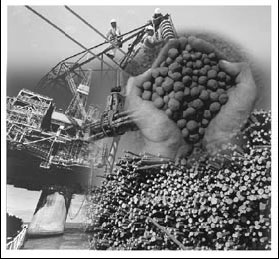The world is full of surprises - even though fatalism grows at a time of many nightmares caused by the news about climate change, and many actual scenes we see here and there of lasting drought, creeping deserts, dead trees and abandoned farms.
 In fact, the more sense of urgency people feel, the greater the likelihood for someone to really do something to take up the challenge. This is what I have learned in helping China Business Weekly (a China Daily product published every Monday) with the planning of its Energy and Environment edition.
In fact, the more sense of urgency people feel, the greater the likelihood for someone to really do something to take up the challenge. This is what I have learned in helping China Business Weekly (a China Daily product published every Monday) with the planning of its Energy and Environment edition.
Partly to report China's reaction to climate change, and partly as a plan to win over more readers, my colleagues and I started our new "double-E" enterprise in the first week of last month.
In the beginning, I thought the attraction of this new product would be, among other things, the background details of the large energy projects, from policy considerations to the names of places where they occur - all Chinese with lots of X's, Q's, and Z's - and something about their local resources.
This is where China Daily has the edge over international information services, because we, after all, enjoy better access to the authoritative information sources. We are close to policies, although we are not that close to the market. Plus, policies, when viewed from a business point of view, carry a lot of significance that would be hard to explain from other perspectives.
Especially for a country like China, of all developments in energy - from oil imports and price to planning of thermal power stations, from nuclear power to domestic companies' overseas expansion - nothing is small news. So in dealing with Chinese energy companies, every international businessperson needs to have some policy perspective.
However, there was a surprise. So far, it has not been the big policy stories, but reports about small companies and their would-be innovations that have aroused our readers' interests.
A couple of weeks ago, we ran a report about a solar power company struggling between a costly development plan still waiting for finance and an innovation that is still to be introduced to the market, a different photovoltaic plate that is cheaper and lighter, although more fragile.
An American metalwork company called us the next afternoon saying it had experience in supporting solar power designs and would like to talk with the company to see if they can work together.
Another example was the response to our report about an invention, by an even smaller company, of a bag which, when holding a sapling and just two bottles of water before it is planted, can help it grow for over half a year without watering before the bag's biodegradation.
For that report, we received inquiries from the United States - from a company presumably helping countries in South America in their desertification control projects; from a Norwegian company helping grow plants as bio-diesel materials in southern China; and from a Singaporean company brokering for a fast-growing solution for poplar trees.
Answering the calls and reading the e-mails from businesspeople and individuals about Chinese inventions are a heartwarming reward, indeed the most precious kind, I can earn from my daily work in Beijing.
E-mail: younuo@chinadaily.com.cn
(China Daily 07/23/2007 page4)

